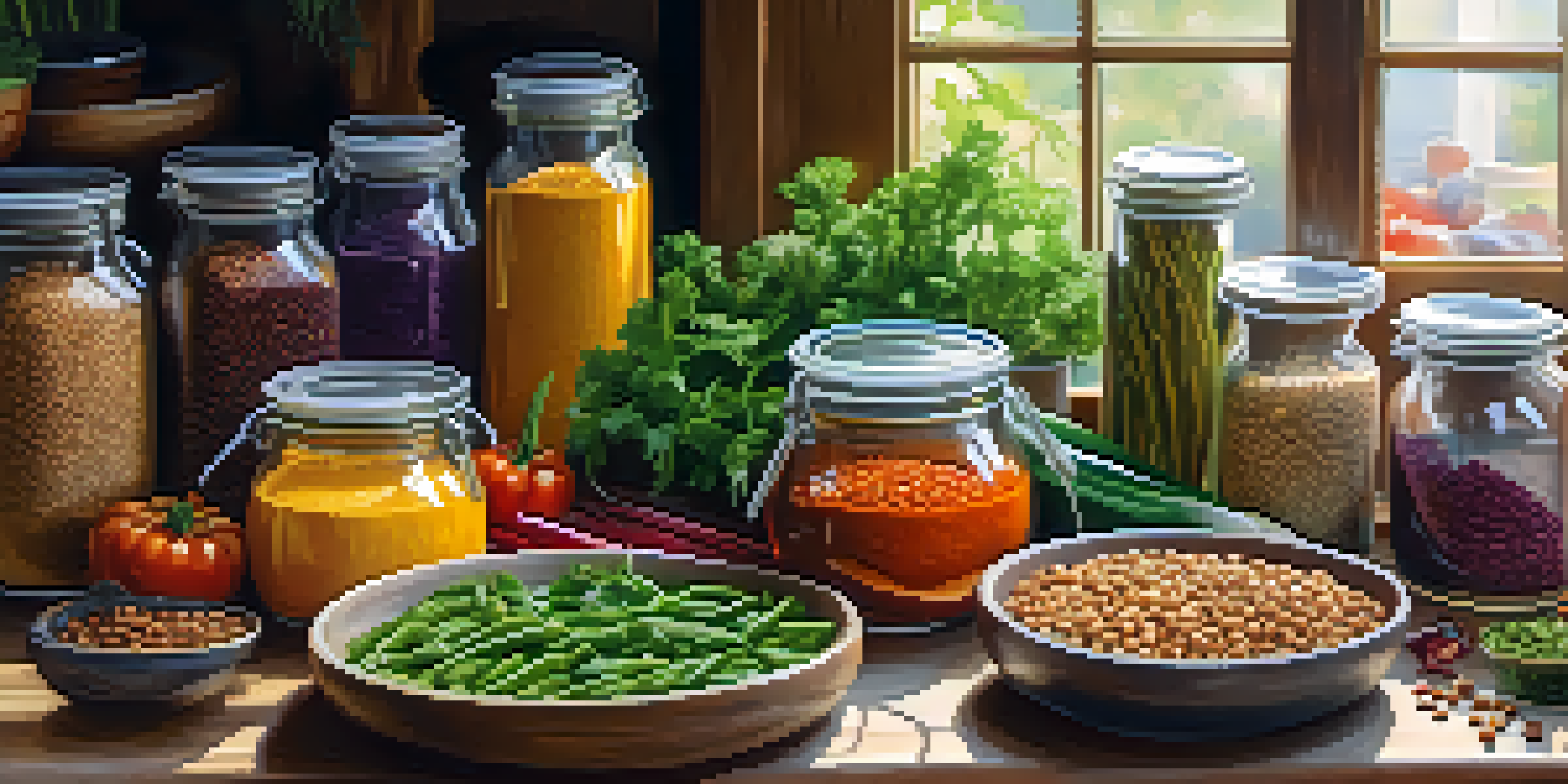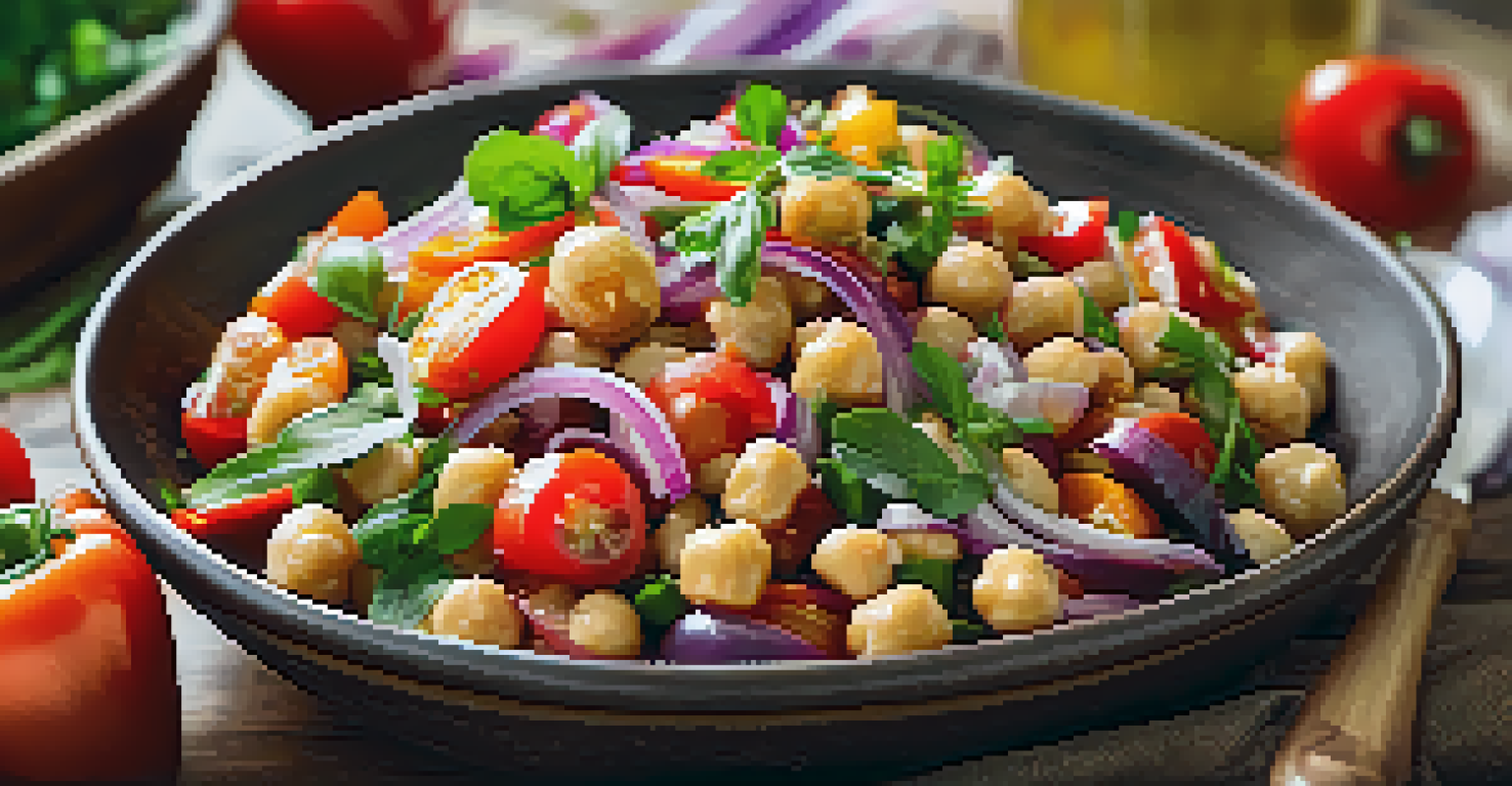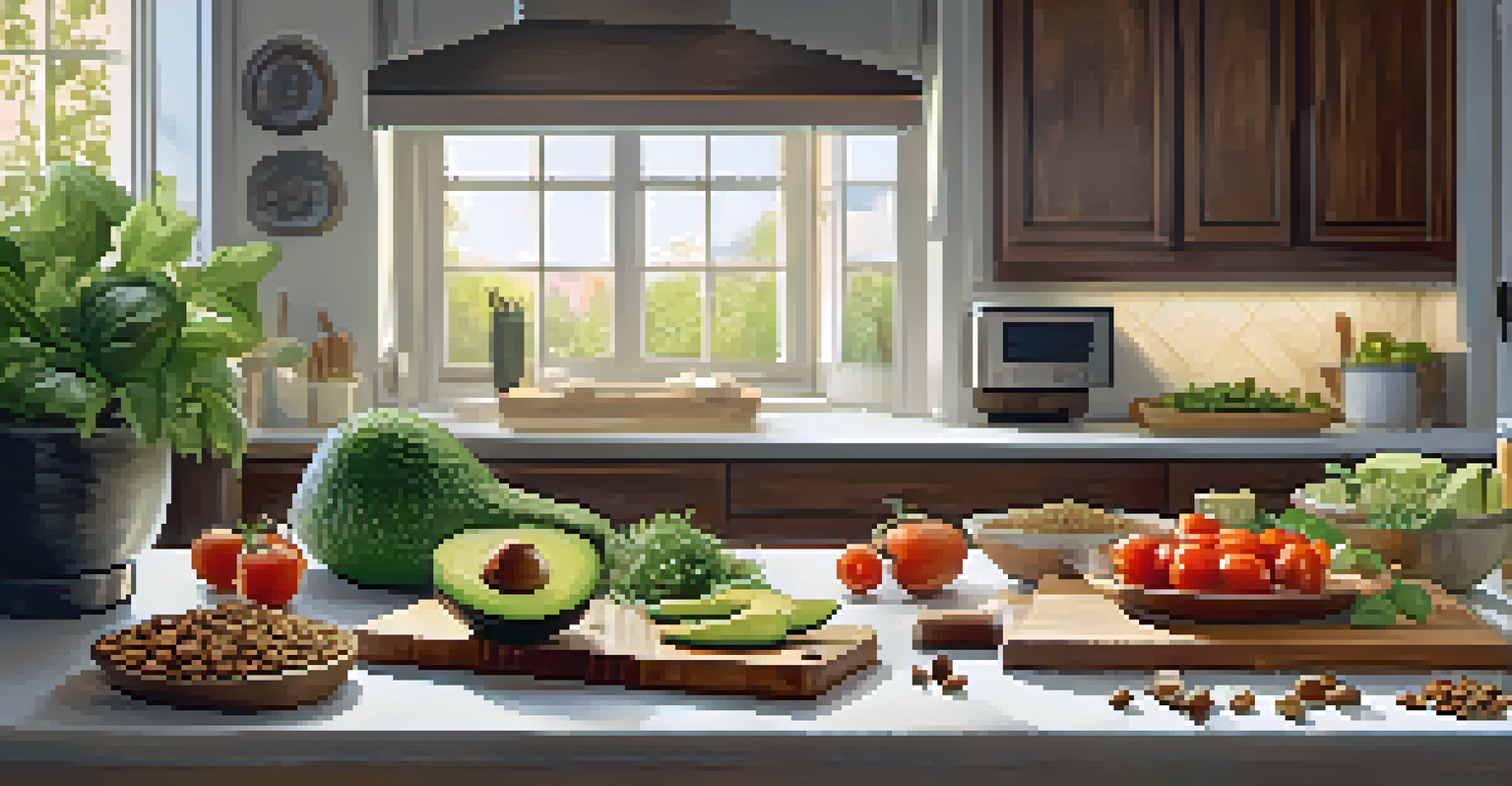Creating Balanced Vegan Meals for Weight Loss Goals

Understanding the Basics of Vegan Nutrition
Before diving into meal creation, it's crucial to grasp vegan nutrition fundamentals. A balanced vegan diet includes a variety of plant-based foods, ensuring you get all essential nutrients. This means incorporating fruits, vegetables, whole grains, legumes, nuts, and seeds into your meals.
Let food be thy medicine and medicine be thy food.
Each food group plays a vital role; for instance, legumes are excellent protein sources, while whole grains provide necessary carbohydrates. By understanding these components, you can effectively plan meals that are both satisfying and aligned with your weight loss goals.
Remember, a successful vegan diet doesn't just exclude animal products; it focuses on nutrient density and variety. By prioritizing whole, unprocessed foods, you’ll set the stage for a healthier lifestyle and sustainable weight loss.
Portion Control: A Key to Weight Loss
One of the simplest strategies for weight loss is managing portion sizes. Even healthy foods can lead to weight gain if consumed in large quantities, so being mindful of portions is essential. Start by using smaller plates or bowls to help control your serving sizes.

Incorporating a balance of macronutrients—proteins, fats, and carbohydrates—while keeping an eye on portions can lead to better satiety and less temptation to overeat. For example, pairing a serving of quinoa, a source of protein and carbs, with a generous portion of vegetables can create a filling meal without excess calories.
Balanced Vegan Nutrition Matters
A successful vegan diet focuses on nutrient density and variety, incorporating essential foods like fruits, vegetables, whole grains, and legumes.
Additionally, listen to your body’s hunger cues. Eating slowly and savoring your meals can help you recognize when you’re satisfied, preventing unnecessary snacking later.
Incorporating Protein-Rich Vegan Foods
Protein is a crucial nutrient for weight loss, as it helps build and repair tissues while keeping you feeling full. Luckily, there are plenty of vegan sources of protein, such as lentils, chickpeas, tofu, and quinoa. Incorporating these into your meals can make a significant difference in your satiety levels.
You are what you eat, so don’t be fast, cheap, easy, or fake.
Consider creating a hearty chickpea salad or a tofu stir-fry packed with colorful veggies. These dishes not only provide a protein boost but also add fiber and essential vitamins to your plate. The key is to mix and match various protein sources to ensure you’re getting a comprehensive amino acid profile.
Don’t forget about snacks! Hummus with carrot sticks or a handful of nuts can be great protein-rich options that keep you energized and satisfied between meals.
The Importance of Healthy Fats in Your Diet
While pursuing weight loss, many people mistakenly eliminate fats from their diet. However, healthy fats are essential for overall health and can aid in weight loss by promoting satiety. Avocados, nuts, seeds, and olive oil are excellent sources of healthy fats that can be easily incorporated into vegan meals.
For instance, adding a few slices of avocado to your salad not only enhances flavor but also helps you feel fuller for longer. Healthy fats can also be beneficial for nutrient absorption, especially for fat-soluble vitamins like A, D, E, and K.
Portion Control Aids Weight Loss
Managing portion sizes while balancing macronutrients can help you stay satisfied and avoid overeating.
Just be mindful of portions, as fats are calorie-dense. A little goes a long way in creating satisfying and delicious dishes.
Building Your Meals Around Vegetables
Vegetables should form the foundation of your vegan meals, as they are low in calories and high in essential nutrients. Aim to fill half your plate with a variety of colorful vegetables, which not only provide fiber but also add texture and flavor to your meals. Think of vegetables as the canvas for your culinary creations.
Roasting, steaming, or sautéing vegetables can enhance their natural flavors. For example, a mix of roasted Brussels sprouts and sweet potatoes can be a delightful base for a meal, topped with a protein source and a drizzle of tahini.
This approach not only keeps your meals vibrant and appealing but also supports your weight loss journey by ensuring you are consuming fewer calories while still feeling full.
Meal Prep: A Game Changer for Weight Loss
Meal prepping can be a powerful tool in achieving your weight loss goals while following a vegan diet. By preparing meals in advance, you can save time, reduce food waste, and control portion sizes, which all contribute to healthier eating habits. Set aside a few hours each week to plan and prepare your meals.
Consider batch cooking staples like grains and legumes, which can be easily incorporated into various meals throughout the week. For example, make a large pot of quinoa or lentils and use them in salads, soups, or wraps.
Hydration Supports Weight Loss
Staying hydrated is crucial as it aids digestion and can help curb unnecessary snacking.
Having healthy options readily available makes it easier to resist the temptation of unhealthy snacks or takeout, keeping you on track with your weight loss objectives.
Staying Hydrated: Don’t Forget the Basics
Hydration is often overlooked, but it plays a crucial role in your overall health and weight loss journey. Drinking enough water can help with digestion, improve energy levels, and even curb unnecessary snacking. Aim for at least eight glasses of water a day, adjusting based on your activity level.
Herbal teas and infused water with fruits or herbs can be refreshing alternatives to plain water. For instance, a slice of lemon or a handful of mint can elevate your hydration game while adding flavor without calories.

Moreover, sometimes feelings of hunger can actually be thirst in disguise. Staying hydrated ensures that you’re not eating when your body simply needs a drink, supporting your weight loss efforts.